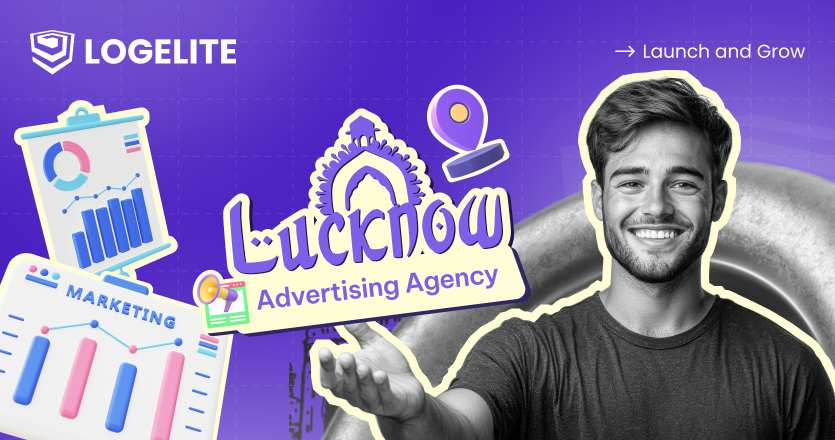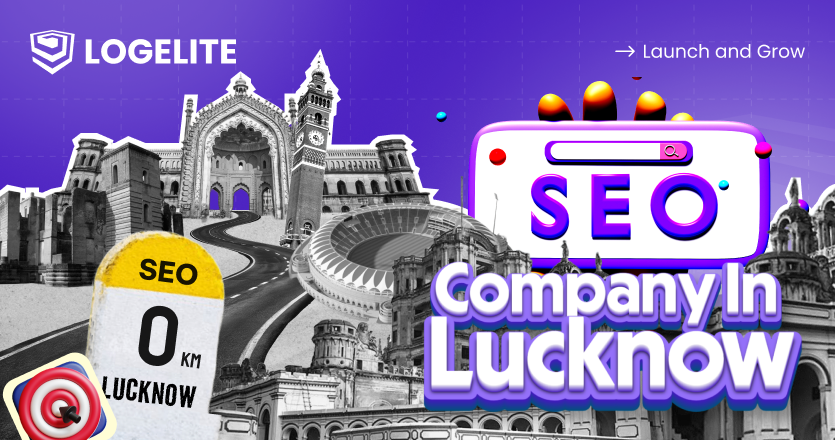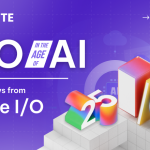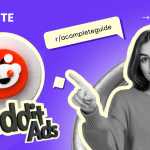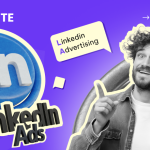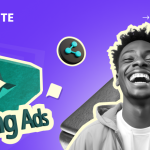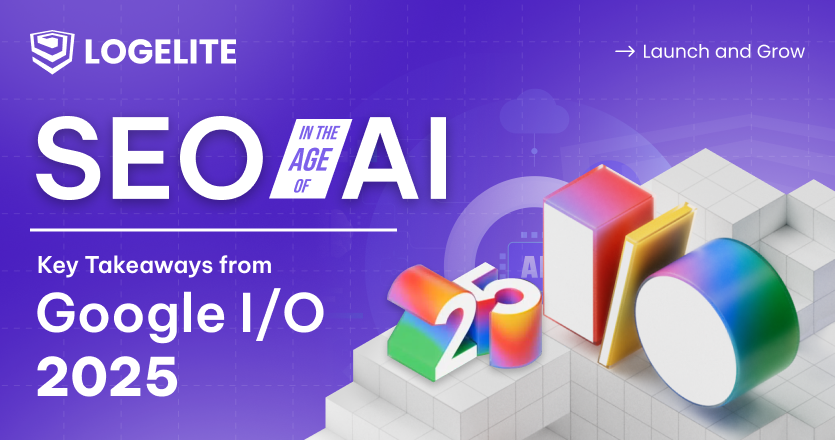
Just when we thought we had a handle on SEO, Google I/O 2025 dropped a wave of AI-powered updates that flipped the script once again. From advanced search experiences to the integration of generative AI in ways we hadn’t imagined, the SEO playbook is getting a serious rewrite. For marketers, content creators, and SEOs alike, the question isn’t just how to rank but how to stay relevant in a search ecosystem evolving at warp speed.
In this blog, we’ll unpack the key takeaways from Google I/O 2025 and explore what they mean for the future of SEO.
A Quick Look at Google I/O 2025
Google I/O 2025 took place on May 20, 2025, in Mountain View, California, and it brought some big news for anyone working in SEO. Google is shifting how search works by rolling out AI Overviews, which are quick AI-generated summaries that appear at the top of search results.
This new search experience is now available in over 200 countries. On top of that, the U.S. is getting a new “AI Mode,” which basically turns Google into a smart assistant powered by Gemini 2.5. Developers also got a closer look at Google AI Studio, a tool designed to help build and test AI applications more efficiently.
Furthermore, Google is now using a retrieval-augmented generation (RAG) approach under the hood, which means it’s no longer just ranking websites but actually pulling in pertinent information from multiple sources to generate complete answers right in the search results. The event also featured creative tools like Photobooth IO, showcasing how AI can enhance interactive user experiences.
Why AI is a Central Theme This Year
Here are some key reasons why AI is a central theme at Google I/O 2025.
Search Is Becoming More Natural and Conversational
We don’t search like we used to. Instead of typing short phrases, we’re now asking full questions or even speaking directly to our devices. Google knows this and is using AI to understand the way we naturally talk. It helps the search engine figure out what we really mean, not just match keywords. That’s why AI is now at the core; it makes search feel more relevant and more helpful.
People Want Quick Answers, Not Just Links
Let’s face it: most of us don’t want to scroll through ten websites to find one simple answer. We want Google to just tell us what we need to know. AI makes that possible. With features like AI Overviews, Google can now pull key info from trusted sources and give you a summary right away. It’s faster, easier, and exactly what today’s users expect from a smart search engine.
AI helps Google Stay Ahead of the Competition
Google is not the only option for people; other companies are also in the race. Companies like Microsoft and OpenAI have developed their own AI-powered tools that answer any kind of question directly. To keep its edge, Google has to innovate, too, and that means making AI a core part of how search works. By doing this, Google stays one step ahead and keeps its users happy by giving them fast and accurate answers.
Search Results Are Becoming More Personal
Not everyone wants the same answer to a question. Where you are, what you’ve searched before, and even your preferences can all shape what you see. Google is using AI to personalize results based on what’s most helpful for you. It’s not just about matching search terms anymore; it’s about understanding the context. This kind of personalization wouldn’t be possible without AI working quietly in the background.
AI Helps Sort Through an Overload of Content
If you enter just one phrase in Google’s search box, like “Top SEO Trends 2025,” you will get hundreds of results, many of which are now created by AI. That means Google has a big job: figuring out what’s actually helpful and what’s just noise. Advanced AI will help Google read, understand, and filter through huge amounts of information to surface high-quality content.
Has Google Moved Away from the Long-Standing ’10 Blue Links’ Model?
While reviewing Google I/O 2025, one question hits us: Is Google really going to change the way users have received search results for the past 25 years? For decades, we typed a query and, in the blink of an eye, got the top 10 results deemed most relevant by Google.
But now, what?
Yes, Google has definitely moved away from its traditional “10 blue links” model. Instead of just providing a list of web pages, Google now uses AI to pull information from multiple sources to create personalized and direct answers to your queries. So, when you ask something like “how to increase organic traffic through SEO,” you’ll get a curated answer rather than a list of links to click.
What Organic Search Marketers Should Know About Google I/O 2025
Google was thinking about removing irrelevant results from previous days from the search engine to truly protect the interests of its audience, and it is right to say that the audience is the real power of Google.

Google I/O 2025 showed a clear intent to do that and to create a new definition of what “Search” is going to mean.
It’s like a wake-up call for marketers whose marketing strategy relies solely on organic results. This is the start of a new chapter, and it’s time to update your strategy to stay ahead.
So, if you’re a marketer, here’s what you really need to pay attention to right now:
AI Mode
Google’s AI Mode is now front and center in the search experience, and it’s a game-changer. Instead of just showing blue links, it gives full answers like you’re chatting with someone smart.
What sets this apart is how it works: using a technique called query fan-out, the system breaks a user’s question into smaller parts, runs multiple related searches, and then pieces everything together into a thoughtful response.
For marketers, this means your content needs to be clear, useful, and trustworthy to show up in these AI-generated responses.
Deep Search
Deep Search takes AI Mode to another level. When someone wants in-depth information, this tool goes further by searching hundreds of sources behind the scenes.
It pulls together facts, opinions, and data to build a detailed answer, almost like a research report. For content creators, this means your site needs to offer more than surface-level info. Make sure your content is original, well-structured, and backed by solid facts so Google sees it as a reliable source.
Hyper-Personalization
Google now knows you better than ever. Google can now tap into your activity across Gmail, YouTube, Maps, and more to customize search results just for you.
That means two users searching for the same thing might get different answers.
For content marketers, the takeaway is clear: it’s time to focus on relevance. We suggest that you understand your audience deeply and create content that feels as though it is made specifically for them and their needs.
Agentic Search
Agentic Search is where Google stops being a middleman and starts being an active assistant. It can now complete tasks for users, like booking tickets, scheduling appointments, or making purchases, right from the search page.
This changes everything. Brands need to prepare their sites to “talk” to Google’s systems.
Clear product details, easy integrations, and well-structured data will help ensure your business is the one Google chooses when it takes action on a user’s behalf.
Search Live
Another big news at Google I/O 2025 was the introduction of Search Live.
With Search Live, users can point their phone at something: a product, a place, a plant, and ask a question out loud. Google will analyze the image, hear the voice prompt, and provide an instant and relevant answer.
It’s a search powered by sight and sound. This shift means marketers must go beyond text. Investing in high-quality visuals, videos, and metadata will make your content easier to understand in real-world situations.
How Google I/O 2025 Signals the Next Phase of AI
At Google I/O 2025, it was clear that AI is entering a whole new era. We’re not just talking about chatbots anymore. The big news? Google has fully integrated Gemini, its powerful new AI, into everything it does. This means AI is not just a tool that you interact with here and there. It’s becoming a central part of almost every product or service Google offers.
Here are the biggest announcements of the event in terms of AI.

Project Astra
Project Astra is Google’s research prototype for a multimodal AI agent designed to be a universal AI assistant. It aims to understand and interact with the real world in real time through text, video, images, and speech.
Project Mariner
Project Mariner is Google’s experimental AI agent designed to automate tasks on the web. It can read and understand web pages, images, and buttons, making it easier for users to navigate and complete tasks online.
Gemini Live
Gemini Live is a breakthrough feature introduced at Google I/O 2025, allowing users to share live camera feeds or screens during interactions. It adds a whole new level of engagement to the way we interact with AI.
Veo3
Veo3 represents the next leap in AI-driven video generation. Capable of transforming text or image prompts into high-definition video. It integrates synchronized audio, dialogue, and ambient sounds, allowing you to create your video content in minutes or seconds.
What Strategy Should You Follow for SEO After Google I/O 2025?
First of all, you don’t need to panic. Most people find themselves in trouble after every Google update. View this as an opportunity because now the visitors who come to your webpage organically have a better chance of converting. If users are coming, it means Google understands your intent, and that’s why it shows your content in AI-generated responses.
We’ve prepared a list of things you should take notice of after Google I/O 2025, and yes, it is for SEO.
1) Identify Areas for Improvement
To run alongside the Google update, there is always a need for improvement, and you need to identify the areas where improvement is required. The latest update is based on intent and relevance, so your primary focus should be on your content.
If your content addresses basic questions like definitions, meanings, news, or simple comparisons, it may no longer offer you an advantage, as AI is capable of synthesizing such information without depending on external sources.
However, content that provides in-depth expertise, such as original experiments or unique methodologies, will be more valuable since AI will need to reference or cite your sources to establish credibility on these topics.
2) Don’t Depend Only on Keywords
People come to Google to find real information, not just to check out keywords, and you need to understand this if you want to build a solid grip on SEO.
After Google I/O 2025, SEO is no longer just about fitting in the right keywords. Instead, focus on answering real user questions clearly and completely. Break your content into sections that can each stand alone as helpful answers.
Add context, real examples, and reliable sources. And what to avoid? GenZ tone, fake examples or case studies, and keyword stuffing (which disrupts natural readability).
3) Technical SEO for Better AI Recognition
With the new advancements introduced at Google I/O 2025, technical SEO needs to focus on helping AI systems interpret your content. Start by using Schema.org structured data to tag elements like articles, FAQs, and product pages—this gives AI clear signals about your content type.
Implement proper semantic HTML with meaningful headings and subheadings that represent the topic of each section.
Add contextual internal links to connect related pages and build topic clusters. Also, consider using the new llms.txt file to guide AI crawlers on which pages reflect your expertise. These steps make your site more AI-friendly and improve visibility in search.
Conclusion
Google I/O 2025 made it clear: search is changing fast, and AI is at the center of it. Instead of just chasing keywords or rankings, the focus is now on creating useful, clear content that really answers people’s questions. Marketers and creators need to adapt by making their content trustworthy and easy to find. The best way to stay ahead is to understand these changes and implement them in your SEO efforts.
Frequently Asked Questions (FAQs)
What is Google I/O 2025?
Ans. Google I/O 2025 was a big tech event where Google showed off new features and tools, especially around AI and how search is changing.
What is Google’s AI Mode introduced at Google I/O 2025?
Ans. AI Mode makes Google feel like a smart assistant. You ask it a question, and it gives you full answers instead of just showing links.
Has Google stopped showing the top 10 blue links?
Ans. Not completely, but Google now focuses more on giving direct answers using AI.
What is Search Live?
Ans. With Search Live, you can point your phone at something and ask a question. Google will look at the image and give an answer.
Do keywords still matter in SEO?
Ans. Yes, but they’re not everything. Now, it’s more important to answer user intent and provide valuable content.

